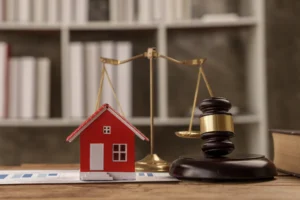Introduction
Air conditioners play a vital role in ensuring comfort, especially in the hot climate of Jumeirah Village Circle (JVC). However, gas leaks in AC units are a common yet hazardous issue that residents must address promptly. Detecting these leaks early not only saves repair costs but also prevents health risks associated with refrigerant exposure.
This guide explains how JVC residents can detect AC gas leaks safely, along with tips on addressing the problem efficiently. From visual inspections to professional intervention, this article provides comprehensive advice to ensure your AC operates optimally.
Understanding AC Gas Leaks
AC gas leaks occur when refrigerant escapes from the sealed system of your air conditioning unit. Refrigerants like R-22 and R-410A are essential for cooling but can pose health hazards when exposed. A gas leak can result in reduced cooling efficiency, higher electricity bills, and potential environmental harm if left untreated.
Signs of a possible AC gas leak include:
- Reduced cooling performance.
- Hissing or bubbling sounds from the unit.
- Ice buildup on the evaporator coils.
- An unusual chemical smell.
- Sudden spikes in your electricity bill.
Detecting and addressing these signs early ensures safety and prevents costly repairs.
Step-by-Step Guide to Detecting AC Gas Leaks
Perform a Visual Inspection
Begin by carefully examining your AC unit for visible signs of damage or wear:
- Look for oily residues near joints and fittings, as refrigerants often leave an oily trail when leaking.
- Check for ice or frost accumulation on the evaporator coils, which may indicate a leak.
Listen for Unusual Sounds
A hissing or bubbling sound from your AC system suggests refrigerant escaping under pressure. Turn off your AC immediately and inspect the source.
Use a Soap Solution Test
Create a simple soap solution using dish soap and water. Apply it to the suspected areas, such as joints or connections, and watch for bubbles. Bubbles indicate refrigerant leakage.
Inspect Cooling Performance
If your AC struggles to maintain consistent cooling, it may be due to low refrigerant levels. Reduced cooling efficiency is often one of the earliest indicators of a gas leak.

Seek Professional Assistance
For accurate diagnosis and repair, contact experts offering AC repair in Jumeirah. Certified technicians use advanced tools, such as electronic leak detectors, to pinpoint leaks precisely.
Safety Tips for JVC Residents
Handling refrigerants without proper knowledge can be hazardous. Here are key safety tips:
- Avoid Direct Contact: Refrigerants can cause skin irritation or frostbite. Always wear gloves and protective gear during inspections.
- Ensure Proper Ventilation: If a gas leak is detected indoors, ventilate the area immediately.
- Turn Off the AC: To prevent further refrigerant loss, switch off the unit until a professional arrives.
- Dispose of Refrigerants Safely: Do not release refrigerants into the air. Licensed professionals should handle their disposal.
Prioritize safety and rely on The JVC Services Providers for expert support in addressing AC issues.
Why Detecting AC Gas Leaks Early Matters
Undetected gas leaks can lead to:
- Increased Energy Costs: Leaks force the AC system to work harder, consuming more electricity.
- Health Risks: Exposure to refrigerants may cause dizziness, nausea, or respiratory issues.
- Environmental Damage: Refrigerants are greenhouse gases that contribute to global warming.
- Unit Failure: Operating an AC unit with low refrigerant levels can damage the compressor, leading to costly repairs.
Acting promptly protects your family’s safety, reduces expenses, and ensures the longevity of your AC unit.
Professional Solutions for AC Gas Leaks in JVC
While DIY detection methods are useful, professional intervention is often necessary for accurate repair. Technicians utilize advanced techniques like:
- Ultraviolet (UV) Dye Testing: Injecting UV dye into the refrigerant system to trace leaks.
- Electronic Leak Detectors: Highly sensitive devices that identify refrigerant levels.
- Repairing or Replacing Components: Fixing faulty valves, joints, or coils to restore efficiency.
For reliable and timely service, rely on The JVC Tech Location.
FAQs on AC Gas Leaks
1. Can I operate my AC with a gas leak?
It’s unsafe to run an AC with a gas leak. Doing so can worsen the damage and pose health hazards. Turn off the unit and seek professional help.
2. How often should I check for AC gas leaks?
Schedule regular maintenance at least once a year to detect and address issues early.
3. Are refrigerants harmful to the environment?
Yes, many refrigerants are greenhouse gases that contribute to global warming. Proper handling and disposal are crucial.
4. Can refrigerant leaks be prevented?
Regular maintenance, using high-quality components, and professional installation minimize the risk of leaks.
5. How much does it cost to repair an AC gas leak?
Costs vary depending on the extent of the damage. For accurate estimates, contact The JVC Services Providers.
Detecting AC gas leaks is crucial for maintaining your unit’s efficiency and ensuring your family’s safety. While DIY methods can help identify potential issues, professional services provide the expertise needed for accurate repair. By following the tips outlined in this guide, JVC residents can address leaks effectively, minimize costs, and enjoy uninterrupted comfort.










